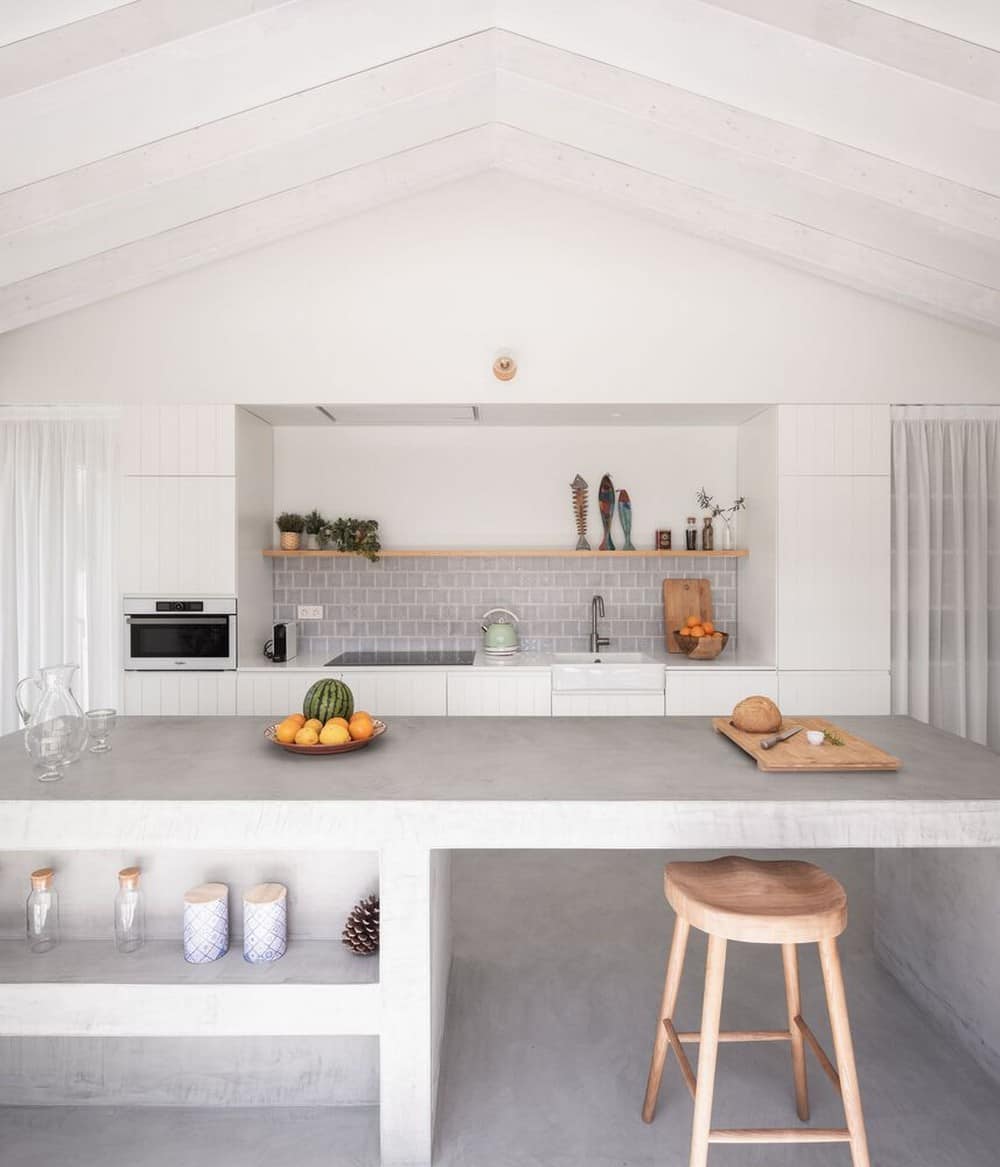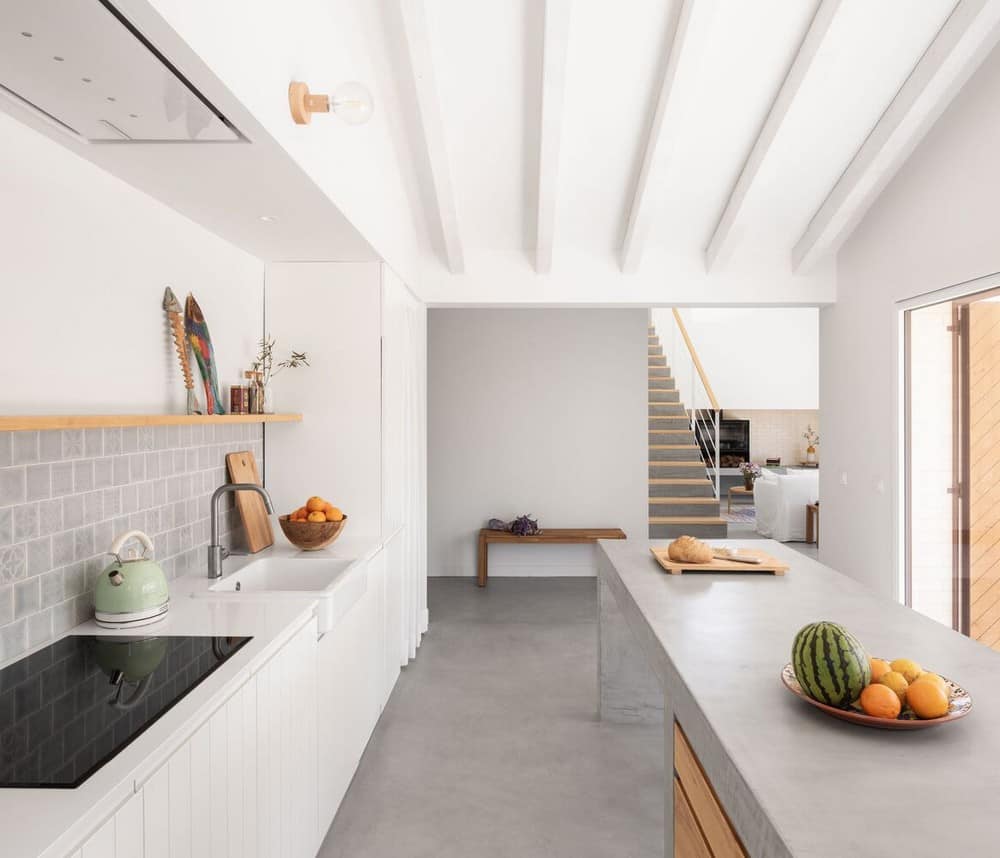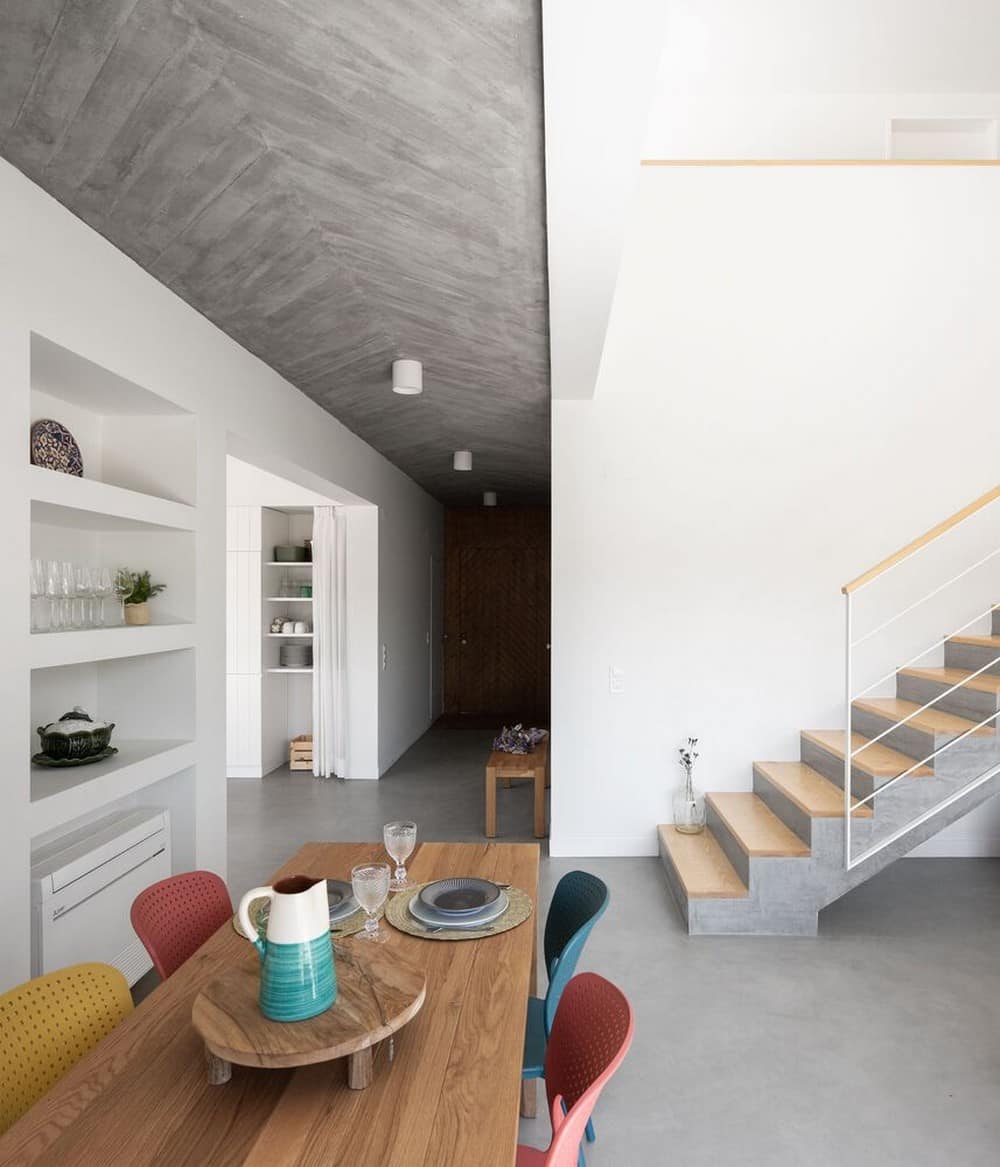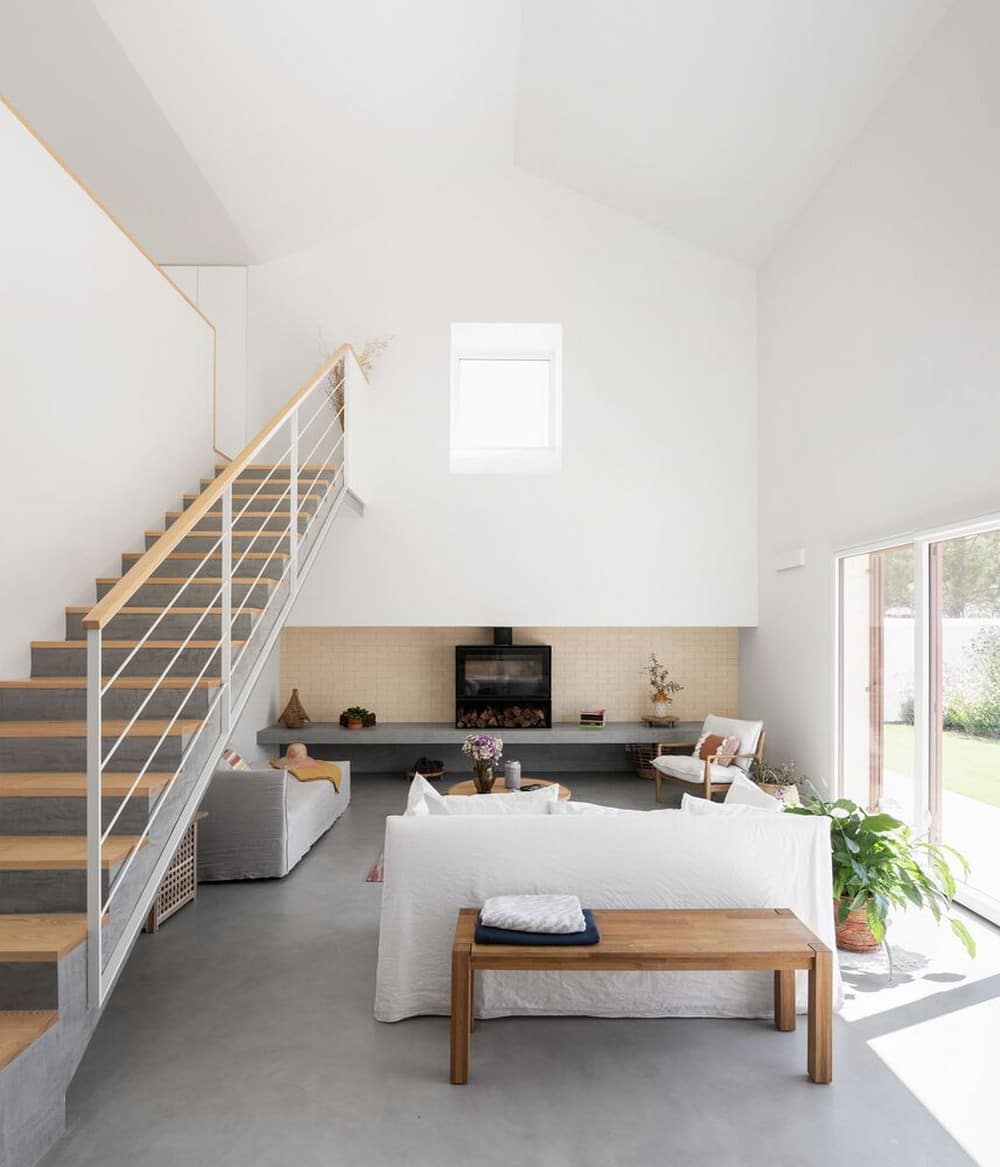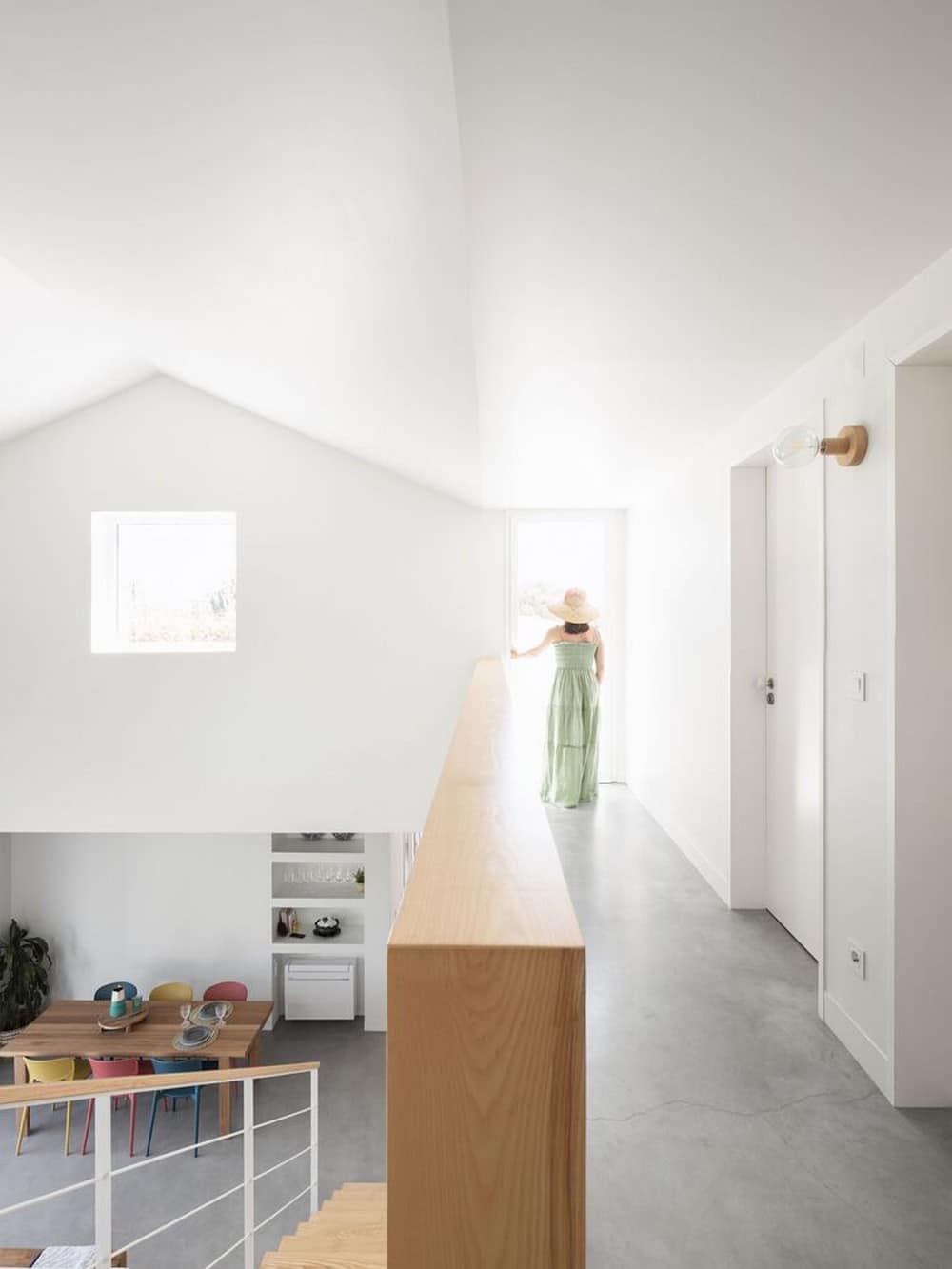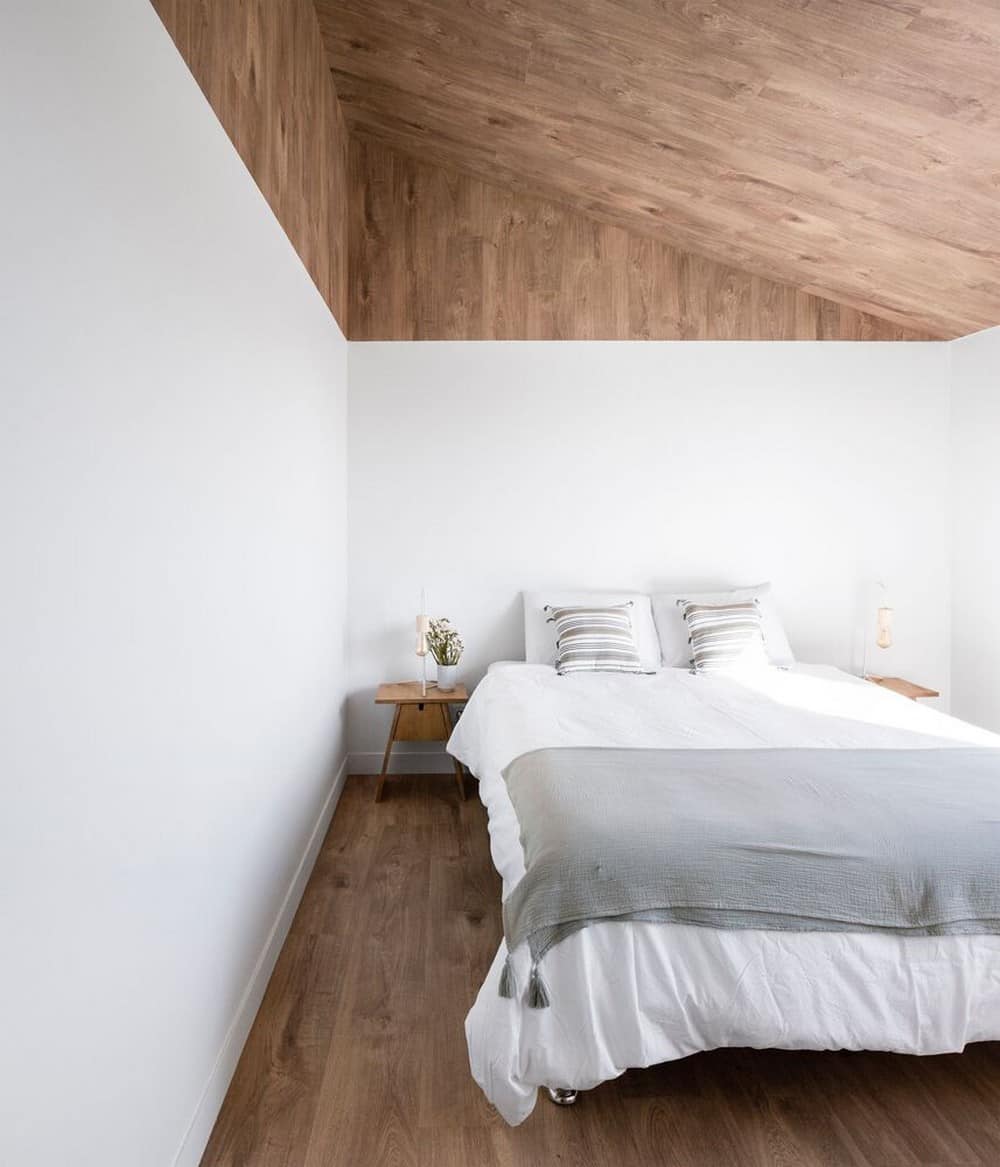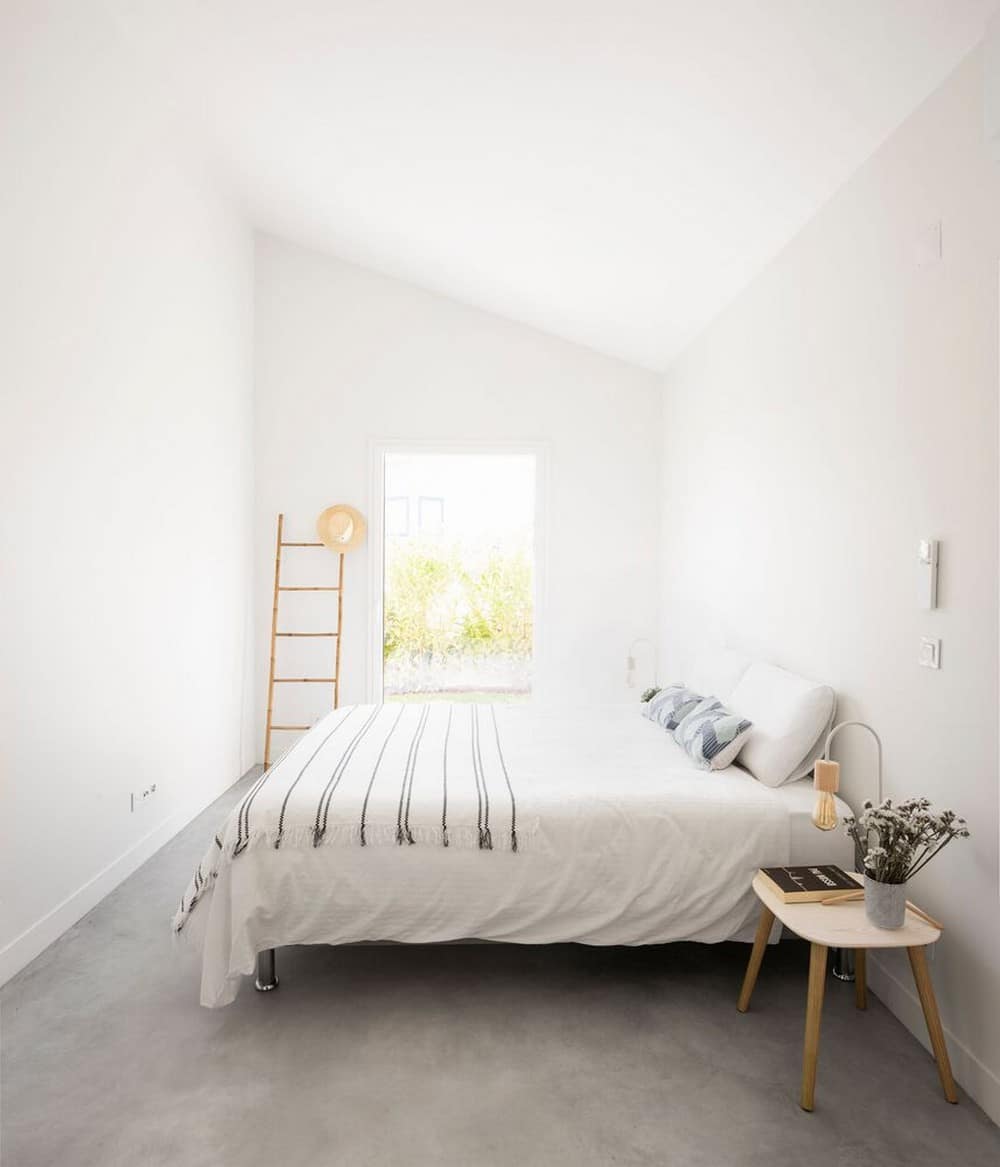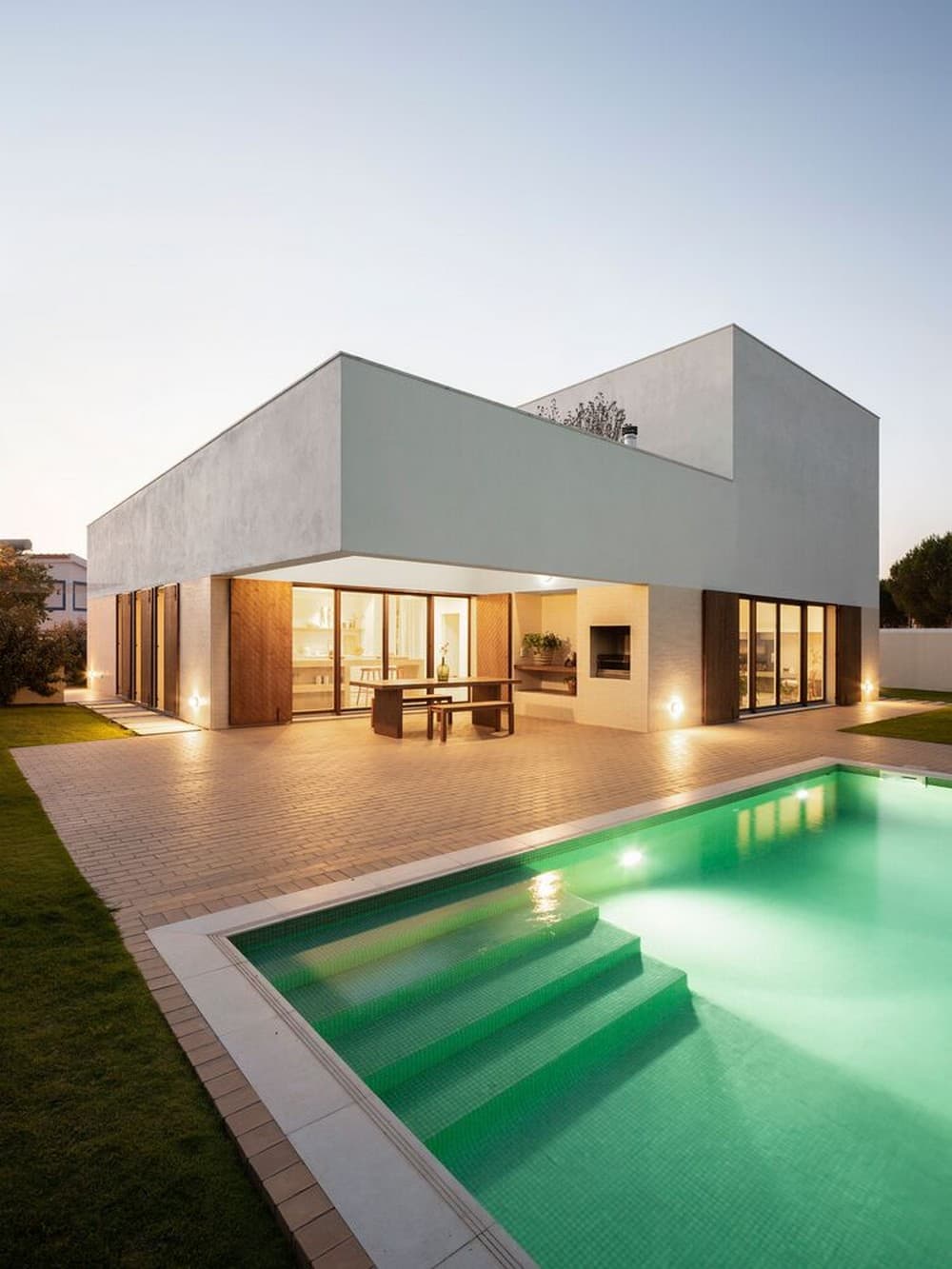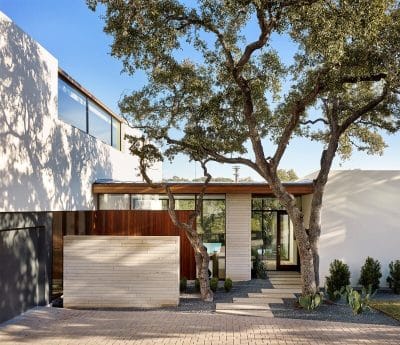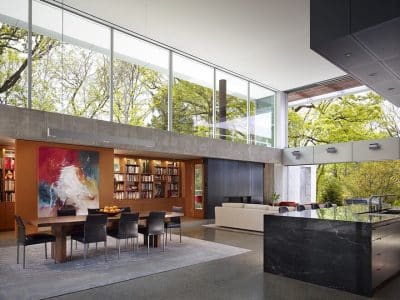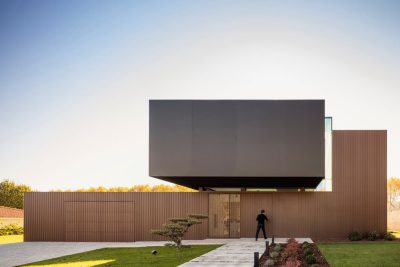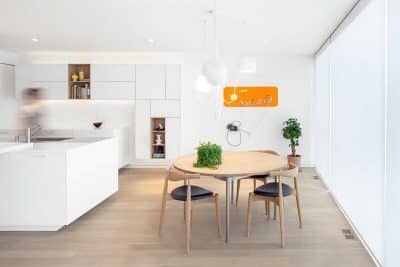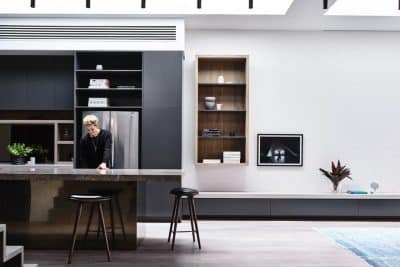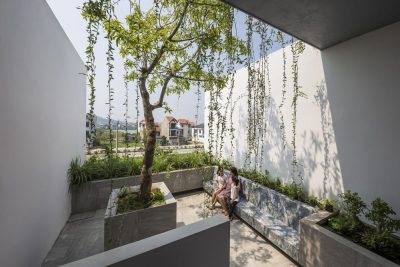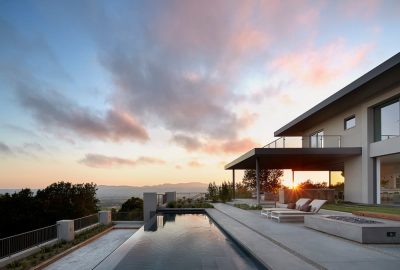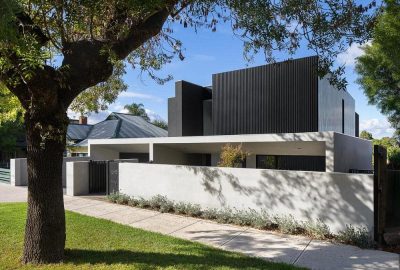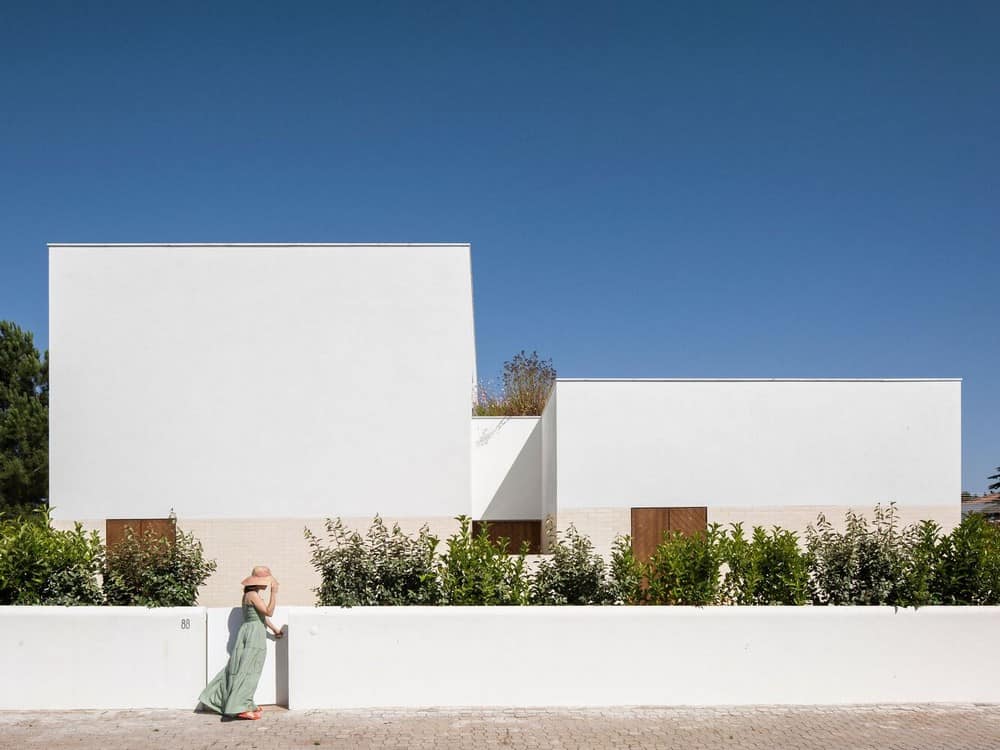
Project: House of the Brejos da Carregueira
Architects: Estúdio AMATAM
Lead Architects: João Amaral, Manuela Tamborino
Construction Company: Fernando Pedreiro, Construção Civil
Location: Comporta, Portugal
Area: 2368 ft2
Year: 2021
Photographs: Garcês
Developing a project for a house uniquely for vacations has challenged us to create a spatial and programmatic concept that reflects this specificity. We sought to understand the qualities of a vacation home and we focused on some characteristics that seemed essential to us.
An inner spatial organization that allowed a strong coexistence among its users, a very close relation between the social area and its exterior, and an atmosphere that revived the morphology of traditional Portuguese houses in the countryside. Our proposal has resulted in an unusual dialogue between modern and traditional.
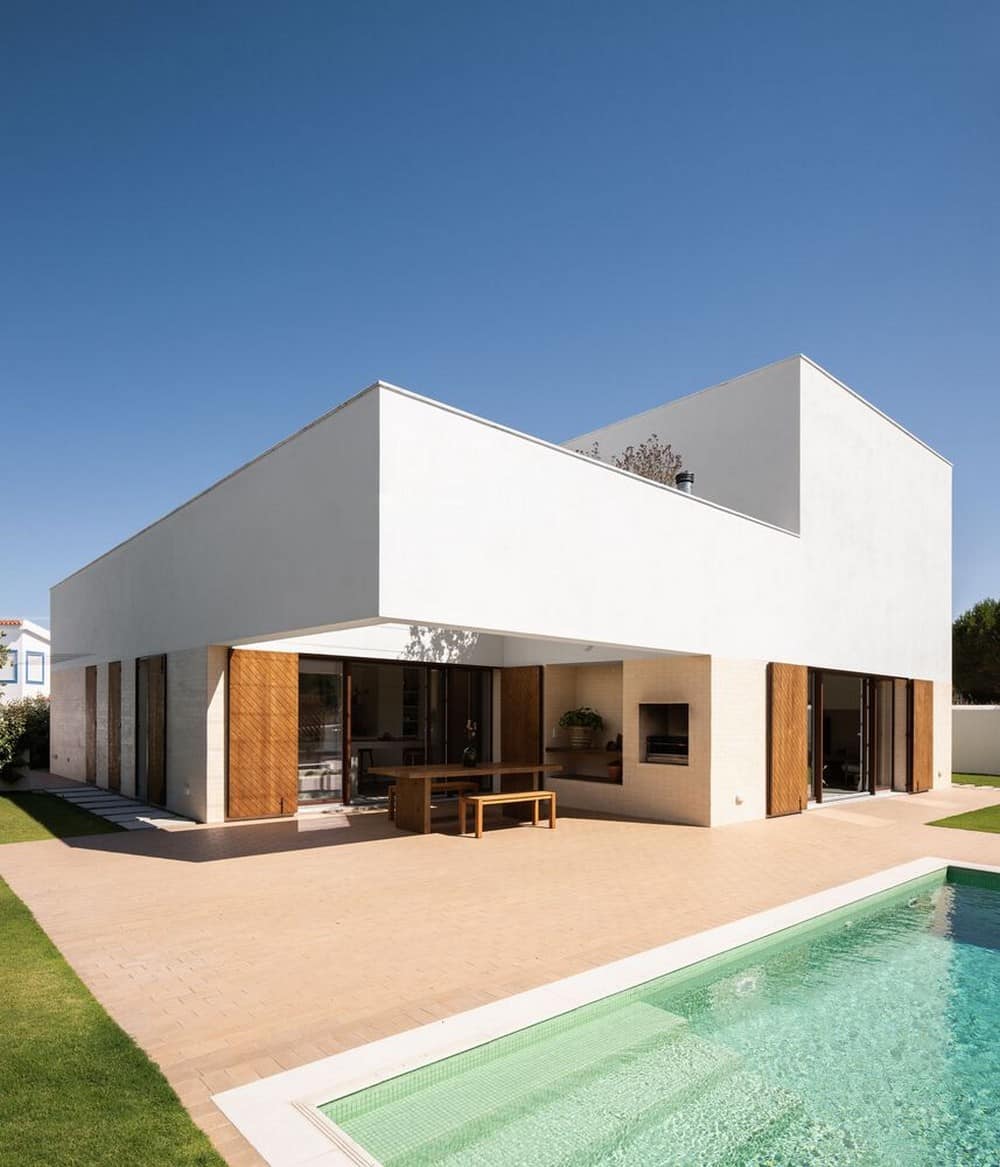
In the exterior, we tried to develop a contemporary language, with pure and simple forms. These modern volumes conceal an interior that exploits a spatiality that takes advantage of the two-story roofs. Despite its modern language, we have provided the exterior with materials that also explore the more artisan side of the country houses, through the use of wood in the doorways and, white ceramic brick.
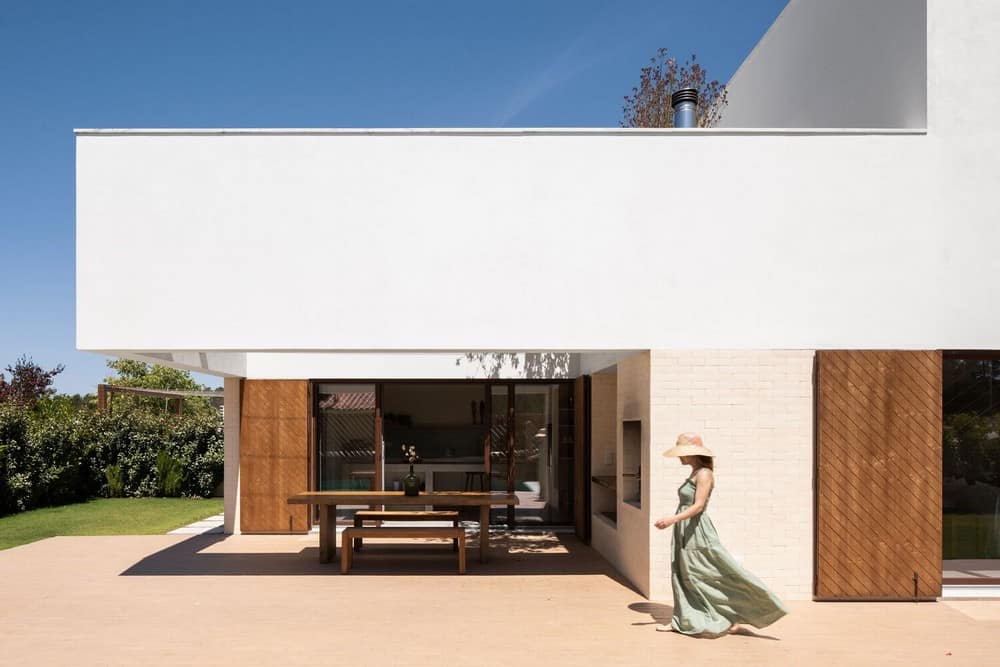
The front facade is the most reserved one since we tried to turn the house to the interior of the plot, where the main outdoor living spaces are located. The main entrance itself is protected by a wall that creates a feeling of intimacy. Also, in the parking area, located on the right side of the house, another wall was placed to protect the pool area on the back of the plot. Here are located the main outdoor spaces, relating to the swimming pool.
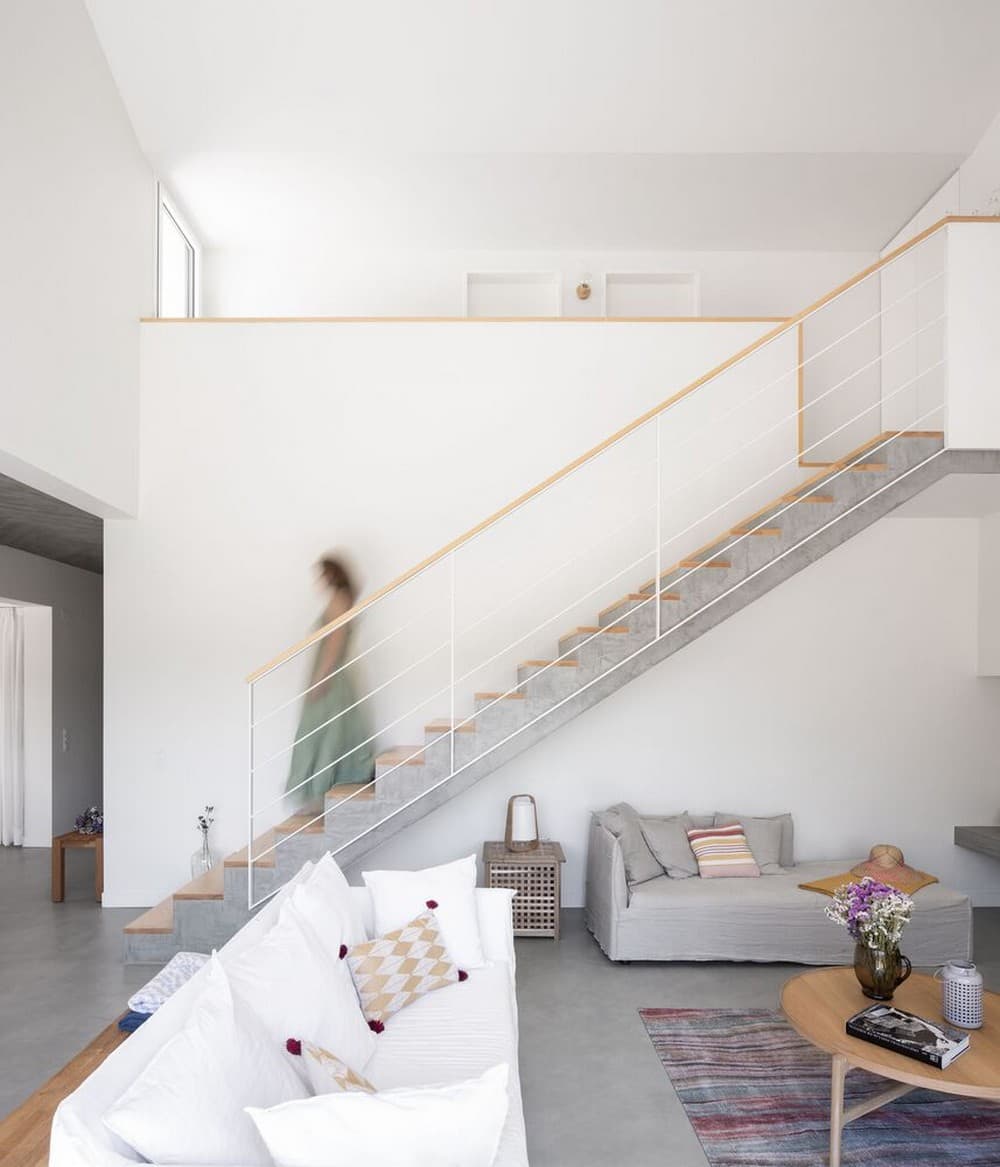
An outdoor dining area and a barbecue extend the kitchen to the exterior shaded by a Jasmin plant that grows on a pergola made by steel cables. Larger windows are also in this area, enhancing the constant relationship between interior and exterior. As a family that loves gastronomy and welcomes guests, the kitchen will be a prominent space in the family dynamic. We sought that this space could communicate directly with the outside and the swimming pool.
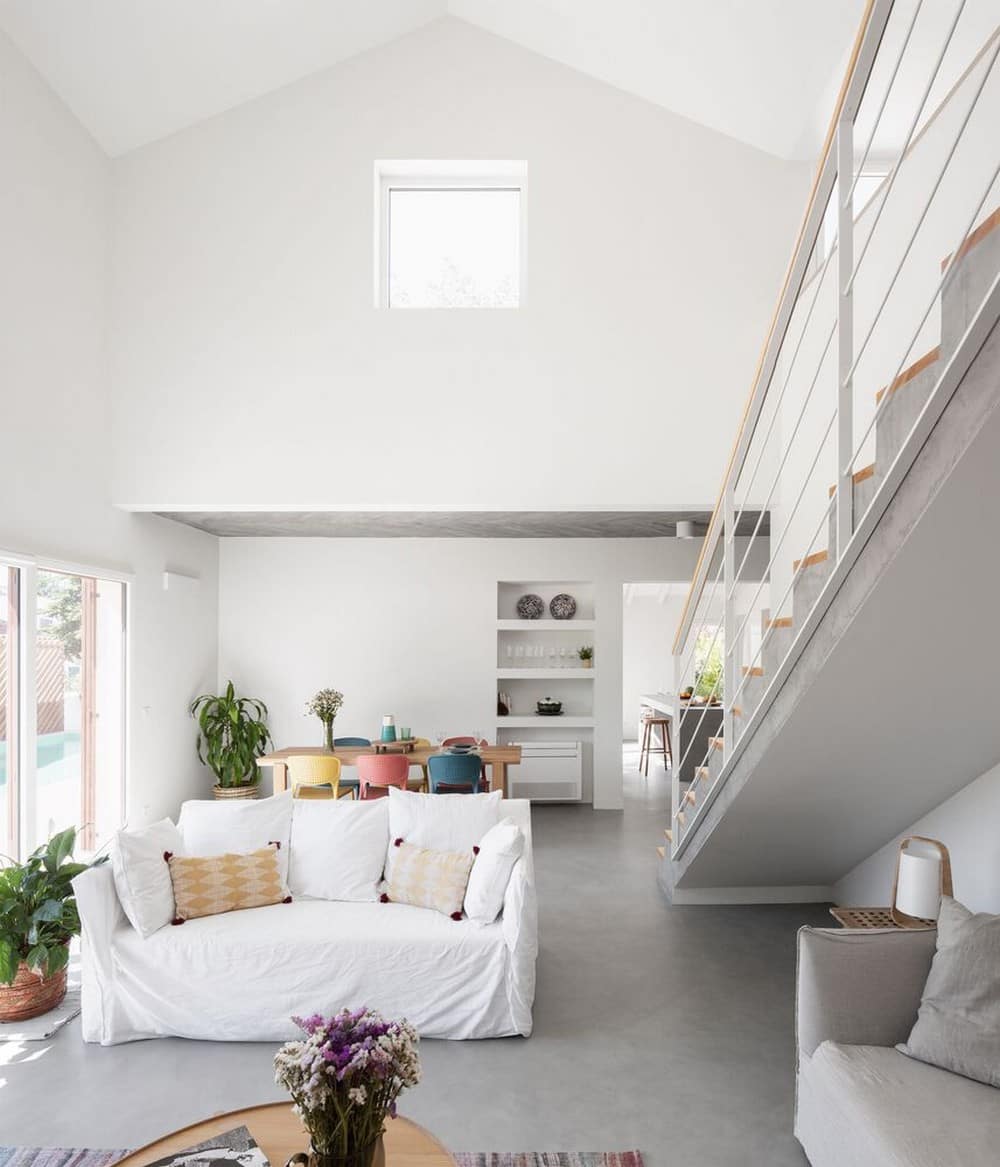
Returning to the concept that motivates this project, we wanted to explore inside the house some characteristics of interior rural houses that have accompanied us since childhood. Variable ceiling heights and gable roofs were explored in the social areas of this house, resulting in a very interesting volumetry. It creates spatial hierarchies and stimulates dynamics for those who experience the house.
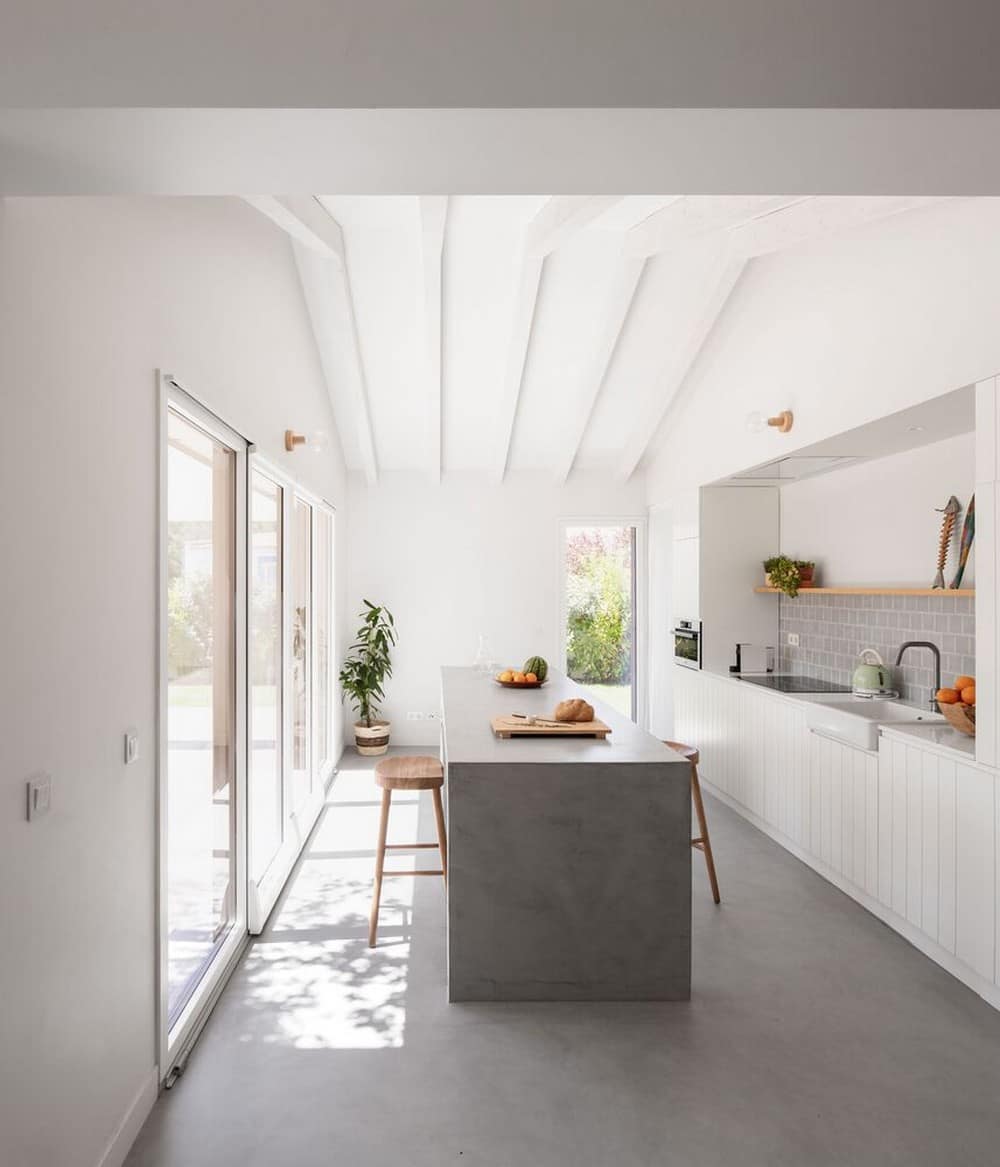
We sought to develop a house with identity, both outside and inside. Furthermore, it can bring together two distinct languages, one inside (more traditional) and one outside (more modern), with the best qualities of both. Consequently, it becomes a space that is a discovery. Who passes by cannot idealize the spatial richness of the interior, nor do those inside understand how the exterior presents such an elegant and minimalist language. This is a modern house for a country experience.
